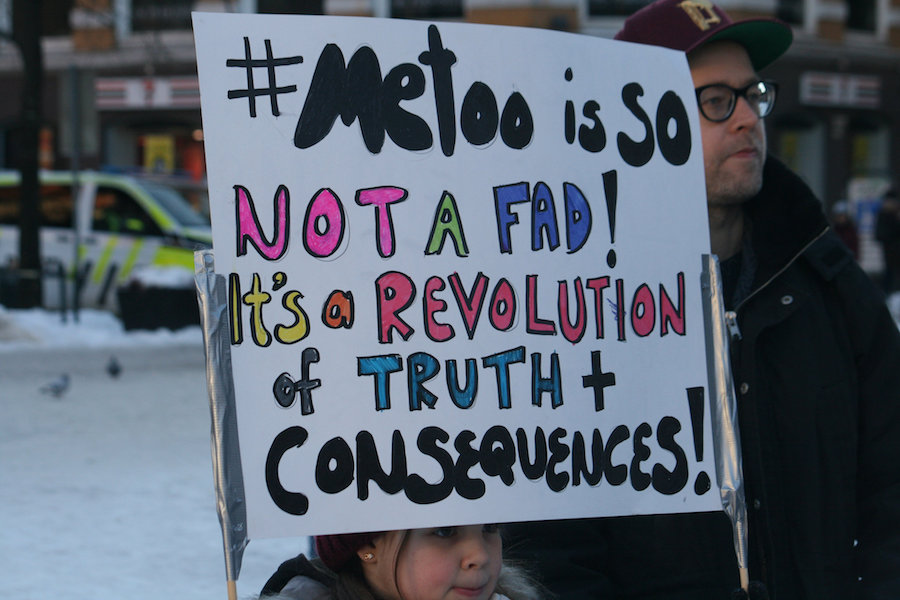
I’m 19 years old, and I can’t stop talking about #MeToo. Understand, this is not a confession or a testimonial of any sort. The lines between right and wrong, between equality and sexism, are not drawn clearly, as they usually are. They’ve been blurred, erased, even redone, in the midst of internet rants, social media storms, public outrage and mockery.
A few months ago, the national dialogue about sexual assault and harassment and everything in between was sporadic at best and dismissive at worst. Following the revelation of Hollywood’s troubled history of sexual assault, however, some things have changed. But it’s not enough. Or perhaps it’s that the #MeToo approach — social media testimonials and the like — may not be beneficial in the long run.
Initially, the appalling stories recounted by men and women alike were empowering. Finally, people were talking about the ubiquity of sexual assault and harassment. Finally, victims were being taken seriously. It was a movement that began with the best of intentions.
And yet the fearless honesty and public confessing of hundreds of women over the past six months is backfiring. Instead of giving voice to women — as it very much intended to do — the #MeToo movement has rendered us voiceless, has othered us.
I am fortunate enough never to have experienced sexual assault. I am one of the lucky ones. I am glad that women are finally telling their stories. And yet I fear that, because of their frequency, we will become inured to them. Frequency too often becomes acceptability in the public sphere. Isn’t there a sense of sexual satisfaction that stories like these offer to some people? Isn’t there a lingering sense of guilty pleasure over the confessional nature of the #MeToo movement, a public obsession that moves far beyond genuine outrage and into morbid fascination?
The other factor is that the stream of stories, while initially empowering, has unintentionally painted women as inherently delicate beings, as perpetual victims. While we are much more likely to be raped, to be harassed, to be passed over for promotions for unfair reasons including gender and physical appearance, the narrative of victimhood is a frightening regression to the female identity of yesteryear, in which women were portrayed as constant and helpless victims of the caprices of men.
I’d like to think — or at least to hope — that we have more power than that. Maybe we don’t. Maybe my expectations are too high. That said, I’ve never had a particularly rosy view of gender relations. But instead of passively nodding our heads as yet another headline about the devastating effects of sexual assault comes out, we need to do something. Let’s tell our stories, yes, but let’s also put theory into practice. Otherwise, the #MeToo movement will hardly change things for the brave women who spoke out and for those whose stories have yet to be told.
Written by: Rebecca Bihn-Wallace — rlbihnwallace@ucdavis.edu
Disclaimer: The views and opinions expressed by individual columnists belong to the columnists alone and do not necessarily indicate the views and opinions held by The California Aggie.



